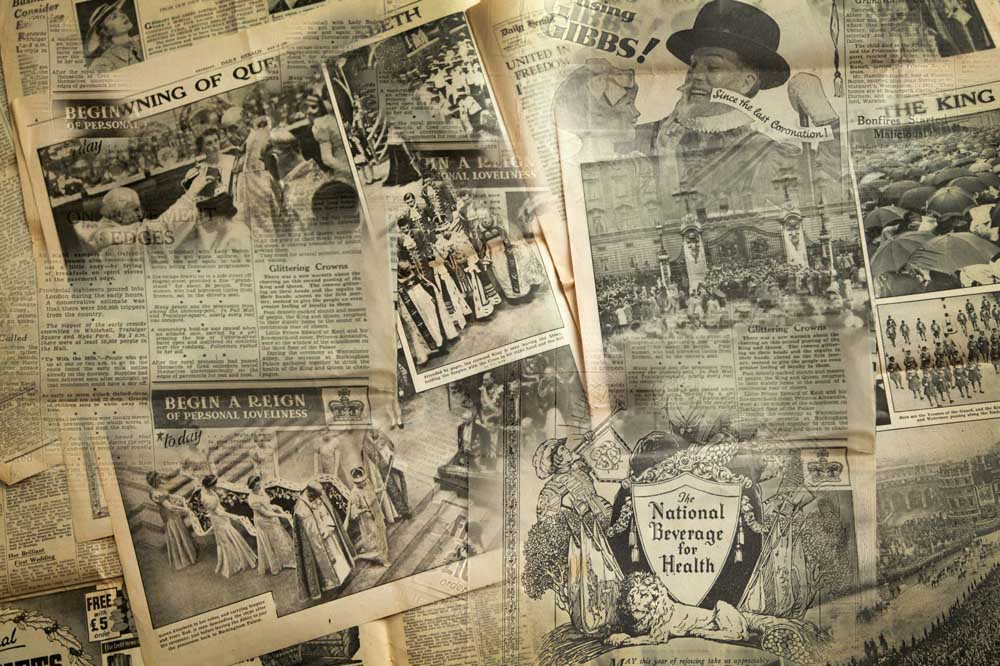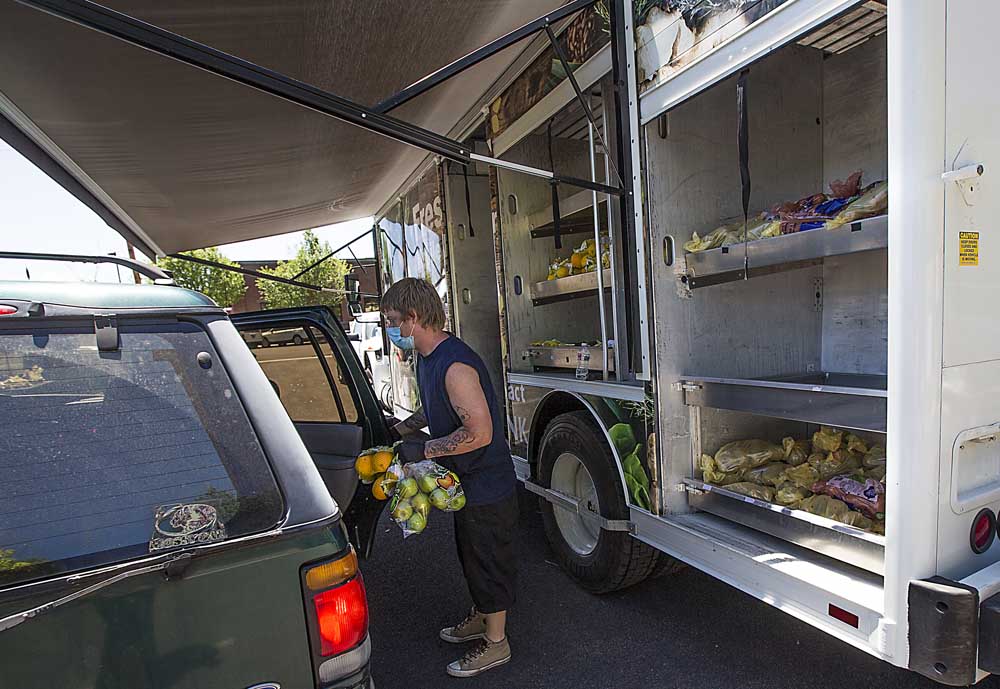100 years ago: Boiler bursts, four are hurt loss is $10,000
Published 12:00 am Sunday, February 16, 2020

- Yesteryear
Compiled by the Deschutes County Historical Society from the archived copies of The Bulletin at the Deschutes Historical Museum
100 years ago
For the week ending
Feb. 15, 1920
Train boiler bursts in huge explosion, injuring four
One trainman badly cut and scalded, three less seriously injured, and a locomotive damaged to the extent of approximately $10,000 — these are the results of an explosion early this morning three miles from Bend, when the boiler of the Shay engine operated by the Brooks-Scanlon Lumber Co. burst as the engine was hauling a string of empties into the woods. A defective crown plate is thought to have been responsible for the explosion, which was so terrific in its force that hot mud and water were showered over trees 150 feet from the track.
Four trainmen were in the cab of the engine at 7:45 o’clock when the heavy steam pressure proved too much for the boiler as the engine stopped just before starting on the grade near the Arnold ditch. Engineer Gend Carroll and Fireman Martin Culler, had been joined by A. McGibbon and Ray Bortin, brakemen, and it was the two latter who were most severely injured. The force of the explosion threw the fire gate against McGibbon, pinning him between the tender and the cab at the same time that the jar released the breaks, allowing the load to slide against the engine, which was twisted from the track. The steam gauge broke, and McGibbon’s back was presented to the scalding spray for two minutes before he squirmed loose. In a dense fog of steam, unable to see his way, he stepped from the cab into a pool of boiling water, scalding both feet and the lower portion of both legs.
Culler was blown from the engine, sustaining bad cuts about the face and shoulders, while Carroll, the engineer, was thrown to the floor and crawled out with only slight injuries. He suffered no burns. Bortin was pinned in much the same manner as McGibbon, but his burns were less severe. Leaving from the opposite side of the cab, Culler, Carroll, and Bortin avoided the boiling pool into which McGibbon had waded.
Leaving the wrecked locomotive, the four walked nearly a mile to Carroll’s home, where they rode in his auto to Bend.
Fire station requests special rings for nonemergency calls
To avoid confusion at the firehouse, those sending in phone calls for any other reason than to give notification of a fire, are requested to ask the operator to give two rings on “black 1401.” The ordinary ring is taken by members of the force on duty in the firehouse as indicating a blaze in some part of the city.
75 years ago
For the week ending
Feb. 15, 1945
Pioneer of early Bend dies
Mrs. L.D. Wiest, 85 who, with her husband, arrived in Bend in 1900 and settled on a homestead that is now a city addition, Wiestoria, died in her sleep last night at the home of her daughter, Mrs. Montelle G. Coe, in Redmond. Mrs. Wiest had been in ill health for the past several weeks, but it was not believed that her condition was serious.
Mrs. Wiest was preceded in death several years ago by her husband, Bend’s first irrigation engineer. It was Mr. Wiest who first surveyed Bend. He arrived here on August 15, 1900, when only a few scattered ranch homes marked the site of Bend, and was joined here by his family in September of the same year. He erected his original home near the spot where the Wiest residence of later years was built, on East Third street.
When the Wiest family first settled here, the only semblance of a “town” was a log cabin, near the Deschutes river in Drake park of the present. That log cabin later served as the first home of The Bend Bulletin.
50 years ago
For the week ending
Feb. 15, 1970
Anti-sex education meeting attracts 60 in Prineville
About 60 persons heard a talk opposing sex education in the schools last night at the Prineville Church of Christ. Audience reaction to the films and subject matter presented during the two-and-a-half hour session appeared interested, but unresponsive.
Several persons left immediately following a speech given by Walter Huss, consultant for the Oregon Committee for Improved Education (OCIE), a group opposing compulsory sex education in state schools.
Only one or two questions were drawn from the audience during the question-and- answer period ending the meeting.
The OCIE claims to be a statewide organization opposed to some facets of sex education.
At last night’s meeting, however, listeners were led to believe that the committee is working toward immediate and complete removal of all sex education of any form from the schools. The committee is also working for legislative action to prevent such classes in the future.
A film “How Babies are Made,” caused a few shocked whispers from the audience. Huss said that while the film is not being shown in Crook County schools, some other schools in the state are using it.
A second film, “Pavlov’s Children,” which attacked UNESCO, United Nations Educational, Scientific and Cultural Organization, as being a party to an underground movement, drew no visible response from the audience. The film criticized UNESCO for condoning and sponsoring sex education in America. “Sex education now, world tyranny later,” was a statement repeated in film.
A petition calling for stopping compulsory sex education was circulated through the audience, with about 45 of the 60 at the meeting signing it. Huss said the committee is seeking to acquire 100,000 signatures to put before the Oregon Legislature.
Salt water aquarium built by Pilot Butte teachers
Seventh grade science students at Pilot Butte Junior High School are observing sea life in a new salt water aquarium built by two of their teachers, Larry Baker and James Ariail. The teachers built the aquarium from scrap wood and pieces of broken window glass.
Last weekend Baker and Arialil visited Cape Arago near Coos Bay and obtained nearly 100 different species of sea plants and animals. They also brought back the salt water used in the aquarium.
25 years ago
From the week ending
February 15, 1995
Family of churches runs a busy community kitchen
As he stirred his steaming bowl of beef stew, the middle-aged, out-of-work man tried to explain how much the free meal meant to him. “It’s allowed us to exist,” he said, nodding to his wife across the table. “With the three meals that we’ve been getting here each week, it’s taken a lot of pressure off. And the cool thing is, the food is provided by a whole conglomeration of churches. It feels like the whole community is helping us out.”
As she buttered a slice of day-old white bead, his wife added: “It gives you hope that life will change. It’s not just a place to eat. It’s a place to learn about the area, and to keep faith in God. If it wasn’t for this place,” she said, pointing to the room populated by 75 diners of similar means, “I don’t know what we would do.”
The object of affection for the couple, who asked that their real names not be used, was the Family Kitchen, a program sponsored by 11 churches that provides free hot meals on Tuesday and Thursday evenings, as well as free sack lunches on Saturdays, to Bend’s needy and homeless.
Held at Trinity Episcopal Church in downtown Bend, the program has fed 40,783 persons in the past four years, at an average cost of $1.83 per person.






